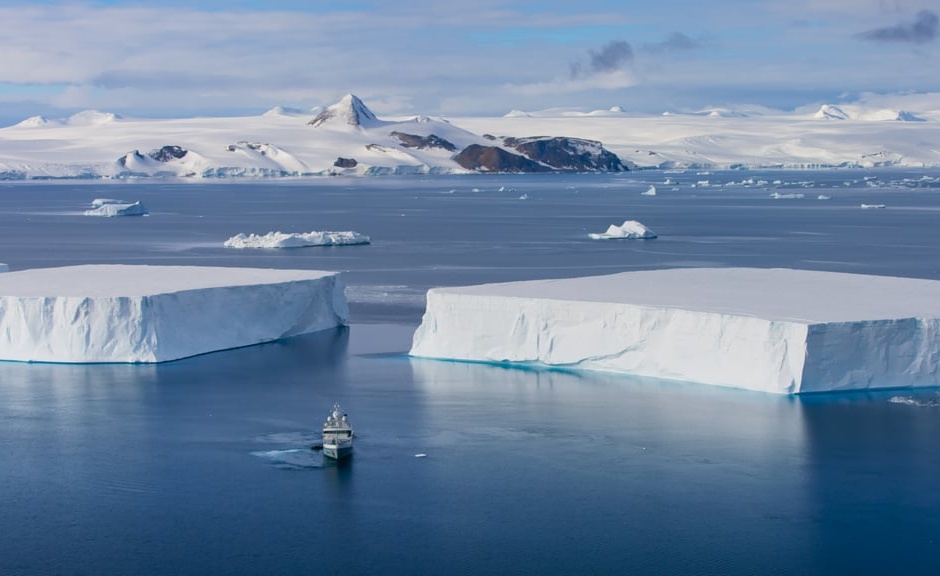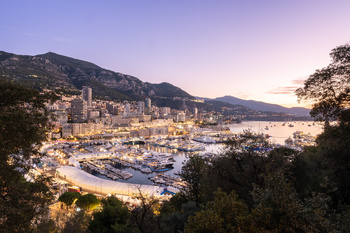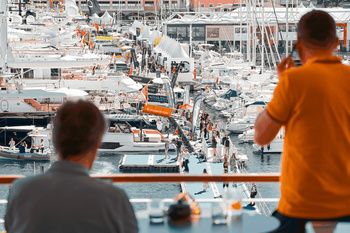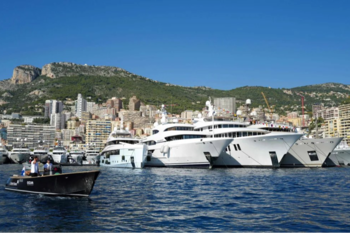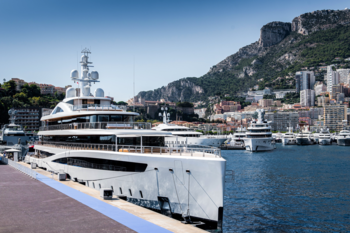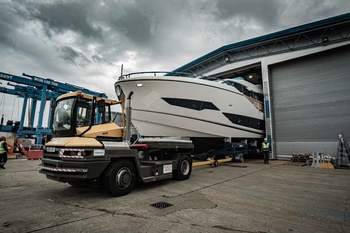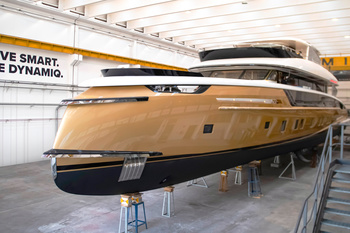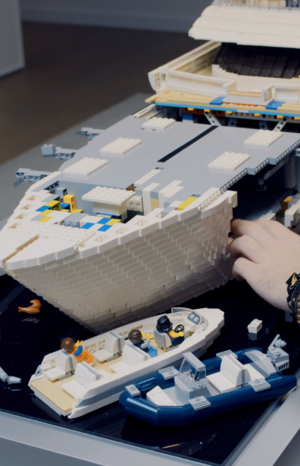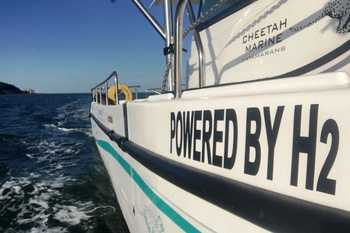Buying a superyacht is a huge investment. Many potential yacht owners are wondering: is such a waste justified, given that enjoying the benefits of living aboard a yacht can be enjoyed for up to a month per year? Today, more and more current and future boat owners come to the idea that a yacht is not only an exclusive holiday opportunity, but also something more: a tool to use to change the world for the better. Microsoft co-founder Paul Allen and Ray Dalio, the founder of Bridgewater, the world's largest hedge fund, were at the origin of a new class «of socially responsible» boat owners. They both acquired ships for research projects. Allen had Petrel, Dalio had Alucia.
Rachel Rowney from Superyacht News spoke to Alex Flemming, head of marine research for the Alucia boat, and other superyacht industry players about this special type of yachting, publishing a translation of her article.
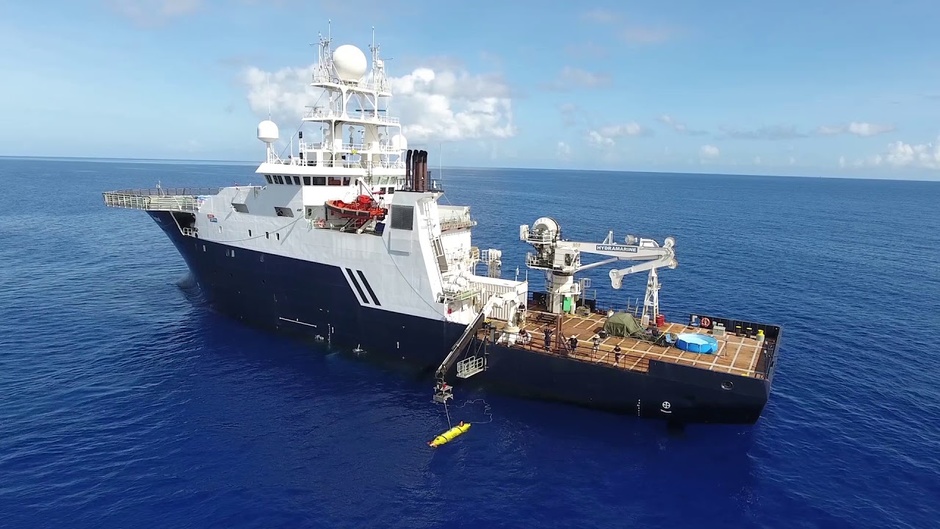
Paul Allen, a co-founder of Microsoft and a great sailing enthusiast, has recently passed away and is widely known in the yachting world as the owner of one of the first explorers, the 126-metre megayacht Octopus, but few people know that he also owned the 76-metre research vessel Petrel.In August Petrel's crew made a sensational discovery of the wreckage of the heavy cruiser USS Indianapolis, which was torpedoed by the Japanese in 1945. This tragedy was immortalized in the monologue of Robert Shaw in the classic thriller by Steven Spielberg «Jaws».
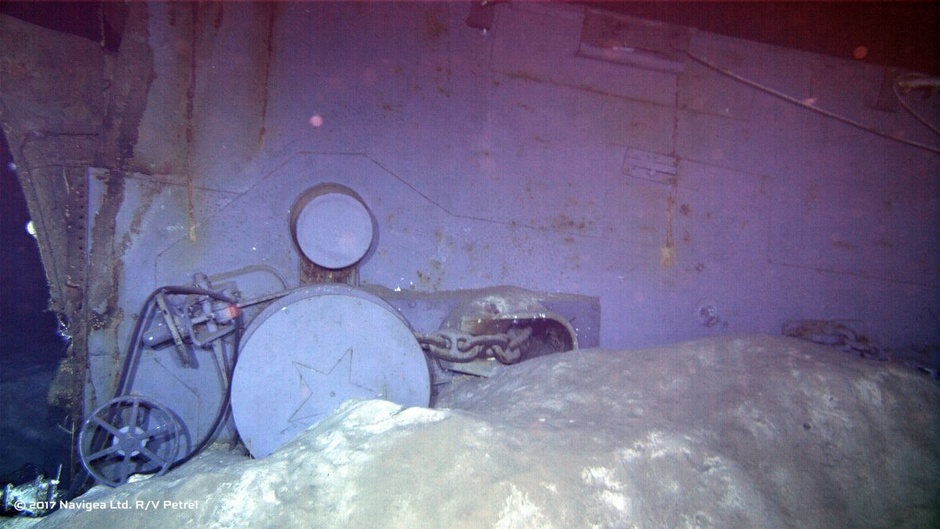
This was not the first such find of Petrel (although the loudest), as well as not her first large expedition - two months earlier the ship's crew had discovered the wreckage of the Italian warship Artigliere. Many discoveries were made possible thanks to an agreement with the National Oceanic and Atmospheric Administration (NOAA). This last expedition attracted not only journalists, but also other boat owners, who began purchasing boats in order to explore the ocean depths themselves or make new discoveries.
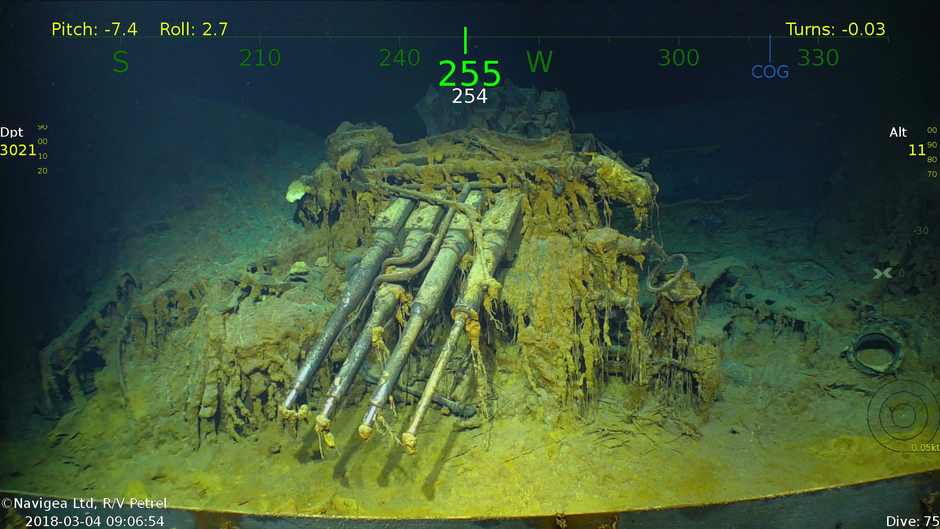
«I think there's a new type of owner for whom a yacht is more than just another purchase," said Alex Flemming, head of marine research for the 56-meter Alucia, owned by American billionaire Ray Dalio. - There are a lot of experienced yacht owners, and there are those who have the means to do it, but have never found a way to justify the huge expense.
Dalio bought Alucia in large part because he was not indifferent to the scientific community. His charitable work brought him together with representatives of the Woods Hole Oceanographic Institution, or WHOI. Dalio was very pleased with what the staff was doing, and he purchased a ship that could help him get to a place where scientists were not allowed to go before. Alucia began her life as a French research vessel back in the seventies. Dalio bought the boat back, repaired and modernised it. Eventually she found herself in the South Atlantic, where in 2009 she took part in the search for the missing flight 447 of Air France.
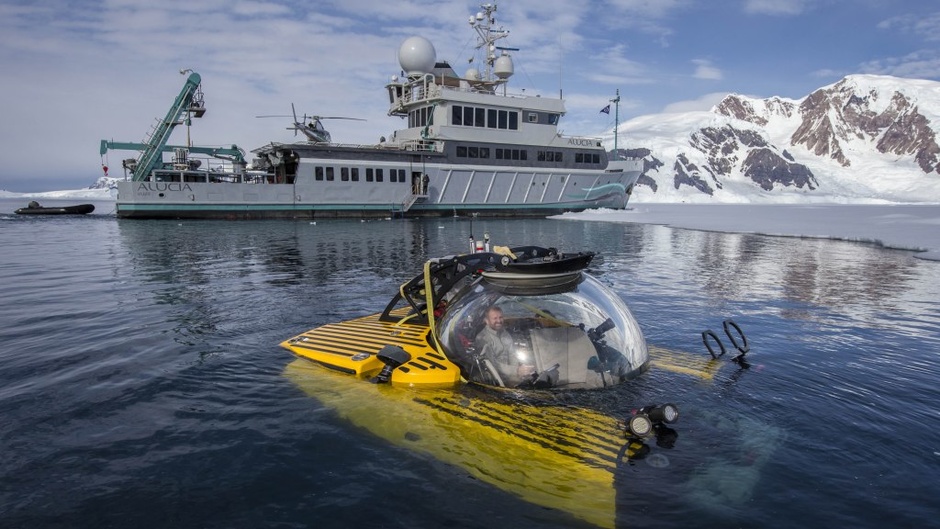
Gradually (especially after several other high-profile expeditions, such as the discovery of the giant squid off the coast of Japan), the name Alucia became a landmark. It was associated with a new generation of yacht owners who liked to combine pleasant things with useful things - boat trips and excursions for guests, leisure and philanthropic activities.
Unlike Allen, Dalio has no other boats. He only began to interact with the superyacht market after purchasing Alucia, which he acquired on his own initiative. And what is the market doing to promote an alternative lifestyle, to talk about the extra opportunities that superyacht owners have and that Alucia owner so successfully uses? According to Flemming, it is important to advertise new opportunities for everyone who can afford a yacht.
«It's not just a matter of ownership, but of new experiences and the feeling that this acquisition is beneficial. If you use the boat for a month and a half a year, most of the time this asset will idle. And it's starting to worry more and more people».
Flemming believes that buying used boats is the right way to clearly understand what you want to achieve in this way.
«You can, of course, order a hybrid - half a yacht, half a working boat. But ordering is one thing. It's harder to know exactly what you need. How can you understand without trying it yourself?»
That is why Flemming argues that it is more logical to buy a ship that has already been built, both cheaper and faster, in order to fulfill a humanitarian or scientific mission.
«Due to problems in the oil industry, many working boats appeared in the secondary market. Most often we are not talking about old boats that need to be repaired, but about ships that are no older than three years. Relatively new and fully functional, they are quite undemanding - refueled and went».
Yacht Broker Steve Reoch of All Ocean Yachts has known many of these owners for 30 years. He once sold a 40 metre modernized North Sea M/Y Phoenix trawler to Christopher and Regina Catrambone, who later founded Migrant Offshore Aid Station, an international humanitarian organization. In 2014, it helped save the lives of more than 40,000 refugees from the North Shore of Africa and Myanmar.
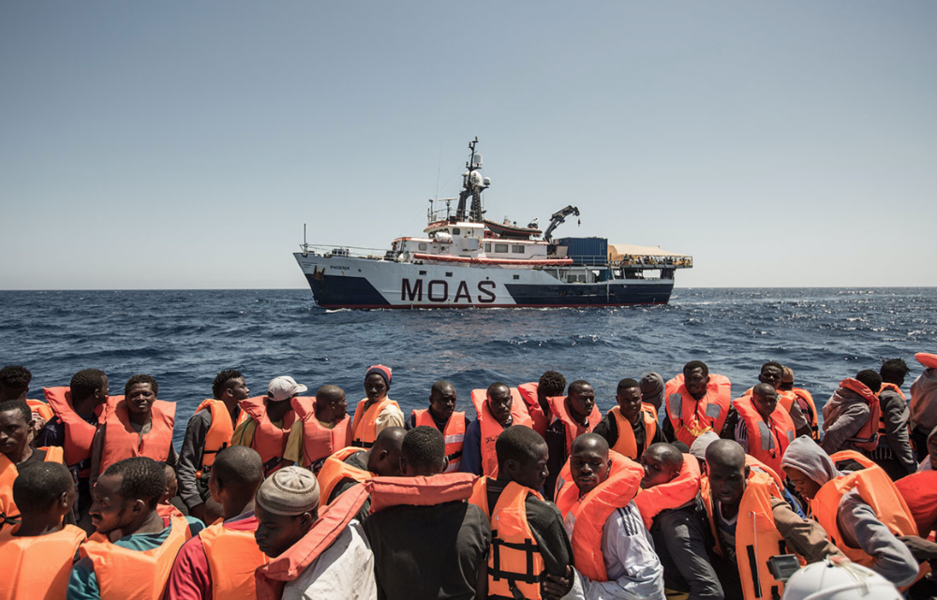
«This part of the yachting industry may not be the most attractive, but it is the most important one. More and more of my clients want to do something good».
Rick repeats Flemming's thoughts and confirms that there is a whole subculture of people who are not buying traditional superyachts, but are looking for boats that will carry an educational, educational mission for both their children and themselves.
A new approach to how one should manage one's wealth has come about largely thanks «to the Oath of Giving», the philanthropic campaign of Warren Buffett and Bill Gates. This attempt to encourage the wealthiest people on the planet to hit altruism is already bearing fruit. Now those who have already been interested in yachts can do both for themselves and the world by purchasing a research vessel.
Besides independent experts, there are many organizations that help yacht owners to use their resources for ocean research.
The Woods Hole Oceanographic Institute is a private independent organization based in Massachusetts, USA. Rob Munier is Vice President of Marine Engineering and Operations. He said the organization uses both its own equipment and that of the U.S. Navy and individuals such as the Alucia.
There are many different models of operation - WHOI tries to be as flexible as possible to make it convenient for boat owners. Munier mentions Falkor, a yacht owned by the Schmidt Ocean Institute. It is an independent organization founded by well-known yachting enthusiasts Eric and Wendy Schmidt. Every day there is a special team on the boat. The transformation into a research vessel has been done with the help of WHOI, which continues to work with the Schmidt Institute.
A huge plus for all those involved in the program is the independence of such boats. They are not tied to anything concrete and do their research more effectively.
They often don't write about the results in scientific publications. All state programs are run by people who are conservative and are mired in paperwork, but all this bureaucracy is unknown to independent organizations. Unlike state institutions, they may be engaged in more experimental or unorthodox missions.
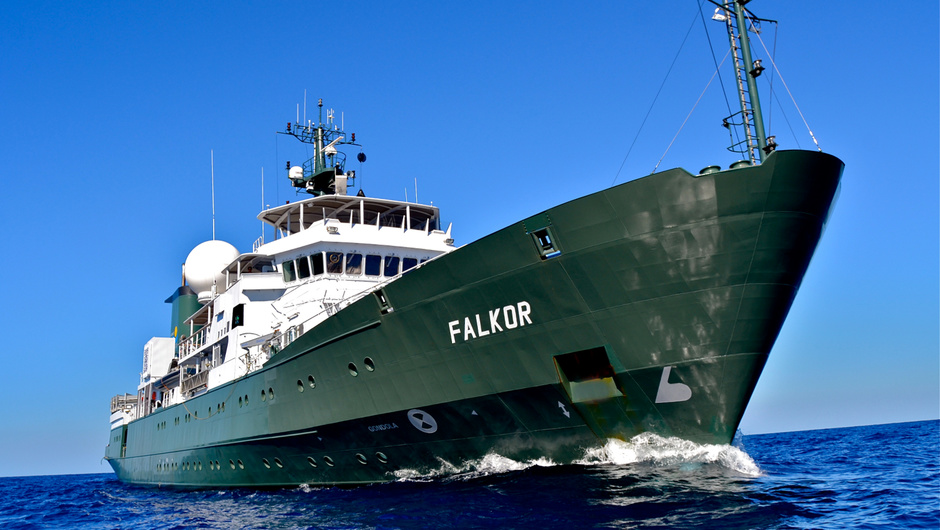
Private expeditions are organized in different ways: a specific owner, an oceanographic institute, a council of scientists and experts, or even a state body can give the good.
«When you work with private individuals who are not burdened by bureaucratic red tape, you get a lot of new opportunities," says Munier. - Independence offers freedom that is unknown to public organisations. Alucia was where traditional research vessels do not sail. It's a whole world of new possibilities that wouldn't otherwise exist».
Contributing to science, ecology and education is a way to change the negative image of a superyacht owner in society. It is no secret that the superyachting world is often associated solely with motoring and sybariticism.
«This is another, unique model of operation that makes it possible to move science, engineering and oceanography»forward," continues Munier.
It is simply impossible to overestimate how important and useful this connection between the scientific community and the private owner is, he emphasizes.
«Our relationship with Alucia and Ray Dalio is now in its seventh year, during which we have completed some sixty missions. Ray Dalio is a visionary who is not afraid to experiment. And his experiments have already led to undeniable success».
Perhaps we - the whole market - are unnoticed by wealthy people with a different mentality from the traditional.
If the superyacht industry promotes the altruistic model of ownership, it will have a positive impact both on the market and on the world.
Let's follow the example of progressive owners so that the industry exists for the common good.
Translated by Denis Koshelev for itBoat.


